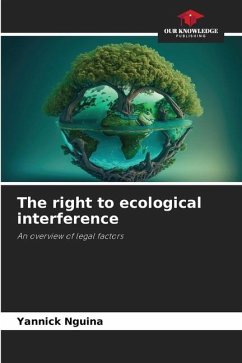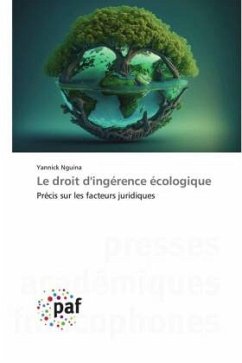The global nature of the environmental issue, its transboundary nature, and hence the common interest that the environment represents for the entire community of states, puts the scope of international sovereignty into perspective. The inherent disharmony between ecological units and state borders means that states have an obligation to ensure that the policies and economic activities carried out within their territorial limits are sustainable and do not cause transboundary environmental damage, or even damage to the global ecosystem. This shared environmental dependence implies international solidarity in the implementation of related obligations. A multitude of actors are legally qualified to intervene Ex ante and Ex post ecological disasters. Taken together, these considerations constitute the legal basis for a right of ecological interference.
Bitte wählen Sie Ihr Anliegen aus.
Rechnungen
Retourenschein anfordern
Bestellstatus
Storno








